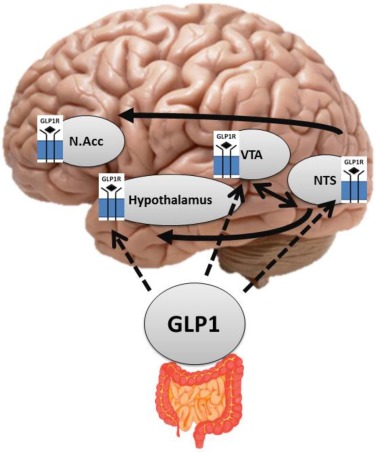GLP-1 drugs benefit not only individuals suffering from obesity and type 2 diabetes. These medications have also been found to help people diagnosed with other diseases including cancer, heart disease and liver ailments. Now there’s a growing number of studies that have identified GLP-1’s role in Alzheimer’s and Parkinson’s disease.
Novo Nordisk’s GLP-1 Trials for Alzheimer’s Disease Treatment
In 2021, Novo Nordisk started two large trials to test semaglutide (also known as Wegovy) in thousands of patients who have been diagnosed with early-stage Alzheimer’s. The results of EVOKE and EVOKE Plus are expected by September 2025 because it takes years to see any effect on such a slowly progressing disease.

Novo Nordisk isn’t the only one interested. Big pharmaceutical companies like Lilly and Pfizer are closely monitoring these trials, while smaller companies like Neuraly in the U.S. and Kariya Pharmaceuticals in Denmark are also exploring similar drugs for Parkinson’s disease and might consider Alzheimer’s if Novo’s trials are successful.
Professor Wassilios Meissner from the University Hospital Bordeaux is involved in a trial for a GLP-1 drug called lixisenatide for Parkinson’s. He says that research on brains affected by Alzheimer’s and Parkinson’s shows impaired insulin signaling, causing the brain’s support systems not to function properly. This finding has led scientists to wonder if diabetes drugs might help these brain disorders.
Research suggests that Alzheimer’s could be linked to insulin resistance and impact of GLP-1 receptor agonists have shown they can reduce brain inflammation and oxidative stress, both key factors in Alzheimer’s. Early studies have shown positive results but more clinical trials are needed to confirm these findings. There is some debate about the link between GLP-1 drugs and pancreatitis, the overall risk seems low.
Study Shows Promise for GLP-1 Drugs in Parkinson’s Treatment
In a Phase 2 trial, patients with early-stage Parkinson’s disease who took a GLP-1 diabetes drug called lixisenatide didn’t see their motor symptoms worsen over a year. This was in contrast to patients taking a placebo who experienced a worsening of symptoms.
Lixisenatide is a type of GLP-1 receptor agonist and it’s believed to have the ability to modify the course of Parkinson’s when used alongside standard Parkinson’s medications. Lixisenatide can cross the blood-brain barrier and has neuroprotective properties in preclinical models of Parkinson’s disease.
Before the LixiPark study, two single-center Phase II trials with other GLP-1 drugs functions, exenatide and liraglutide, showed beneficial effects on both the motor and non-motor symptoms in people suffering from advanced Parkinson’s. This led to the LixiPark trial which is designed to evaluate whether lixisenatide could modify the disease when used in early stage Parkinson’s patients.
After one year of daily treatment, participants taking lixisenatide showed less disability according to the Movement Disorder Society-Unified Parkinson’s Disease Rating Scale (MDS-UPDRS). The improved scores in both the “ON” and “OFF” states suggested that the drug might be improving the underlying disease and not just enhancing the effects of other medications.

The Connection Between GLP-1 with Alzheimer’s and Parkinson’s
Why might a diabetes drug help slow Parkinson’s or Alzheimer’s disease progression? While the exact reasons aren’t clear, we do know that people with diabetes are up to 40% more likely to develop these diseases.
Inflammation is a common factor in many chronic diseases, including Parkinson’s and Alzheimer’s. It’s believed that the anti-inflammatory properties of GLP-1 drugs might help protect the neurons in the brain and reduce inflammation.
GLP-1 drugs currently used for diabetes have shown clear neuroprotective effects in initial clinical trials for Alzheimer’s and Parkinson’s. This demonstrates that such strategy is viable and that more extensive research and drug development are needed in this area.